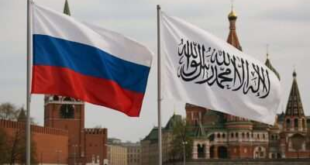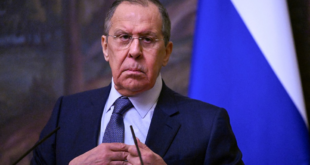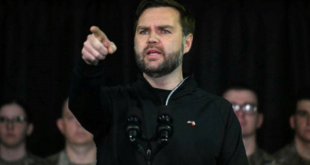BERLIN, Feb. 1 — Germany on Friday rejected a formal request from the United States to send forces to war zones in southern Afghanistan, the latest setback to the NATO alliance as it tries to scrape together enough troops to battle resurgent Taliban forces and stabilize the country.
Defense Minister Franz-Josef Jung said his country’s contingent of 3,200 soldiers would stay put in the northern provinces, where they patrol some of the most secure areas of Afghanistan. “That will have to continue to be our focus,” Jung said to reporters.
NATO commanders have said they need to add 7,500 troops to the 40,000-member force that NATO oversees in Afghanistan. But there have been few countries willing to comply. Meanwhile, NATO has been struggling to persuade some members not to worsen matters by pulling out.
This week, for example, Canadian Prime Minister Stephen Harper threatened to withdraw his country’s 2,500 troops next year from around Kandahar — a major hot spot — unless they receive reinforcements. Following a rise in casualties, the Dutch and British governments are also facing domestic pressure to reduce their military presence in southern Afghanistan.
German officials said they had received a “stern” letter in recent days from U.S. Defense Secretary Robert M. Gates, pressing for thousands more troops, including for southern Afghanistan. Although they did not release a copy of the letter, officials in Berlin said they resented what they described as pressure tactics.
Ulrich Wilhelm, a German government spokesman, said Gates’s letter “came as a surprise.” He told reporters, “During all the meetings and talks we have had with the U.S. side in recent months, the engagement of the German military . . . was expressly praised.”
U.S. officials played down the spat, saying Gates sent the same letter to other NATO members. Pentagon officials have said they are increasingly frustrated, however, with what they see as a lack of commitment from some European members of NATO.
Last month, after failing to drum up forces elsewhere, Gates said Washington would send 3,200 more Marines to Afghanistan for a seven-month tour. But he called on NATO allies to be prepared to replace them. The United States already has 26,000 troops in Afghanistan, about half of them under NATO command.
On Thursday, Assistant Secretary of State Richard A. Boucher said that the troop shortfalls were a serious problem and that the success of the international mission in Afghanistan was “not assured.” “We expect more from our NATO allies,” he said at a Senate hearing. “The greatest threat to Afghanistan’s future is abandonment by the international community.”
With a 250,000-member military and Europe’s biggest economy, Germany is facing considerable pressure to do more in Afghanistan. But it is confronted by powerful obstacles at home. Among them: a strong reluctance to send soldiers into battle given the country’s Nazi legacy, and popular opposition to a war that is seen by many Germans as America’s problem.
In addition, German lawmakers and military officials differ with Washington over the best strategy. While the Pentagon has focused on fighting the Taliban and securing territory before reconstruction projects begin, Germany prefers a softer approach, with an emphasis on economic development and training Afghan forces.
“It’s a little bit too simple to put all this on a pacifist and reluctant German public,” said Henning Riecke, a security analyst at the German Council on Foreign Relations in Berlin. “There are two different concepts of how a stabilization plan should work. . . . There is no willingness in Germany to blindly follow an American combat-style approach.”
While Chancellor Angela Merkel’s Christian Democrats are sympathetic to the Bush administration’s requests, her party has been forced to govern in a politically awkward coalition with its historical rival, the Social Democrats, who are much less supportive.
German officials said they are restricted by a 2007 parliamentary vote that capped the number of German personnel in Afghanistan at 3,500. The rules largely limit the troops to peacekeeping duty in the north and allow them to operate elsewhere only under “emergency” circumstances.
Germany also has deployed six Tornado surveillance jets. And last month it agreed to provide 250 combat troops as part of a NATO “quick reaction force” that will replace 350 Norwegian soldiers.
“Our tasks and responsibilities are substantial and we are good at what we do,” Karl Lamers, deputy chairman of the German Parliament’s defense committee, said in a telephone interview. “I see no reason why that should be changed. A change would endanger the entire operation in Afghanistan.”
Washington officials, however, have criticized the performance of German and other NATO forces. In December, without mentioning Germany by name, Gates called NATO’s program to train Afghan police officers “disappointing,” saying the force was plagued by corruption. Germany oversees the program.
Last month, in an interview with the Los Angeles Times, Gates described some NATO troops in the south as ill-equipped to fight the Taliban. “I’m worried we have some military forces that don’t know how to do counterinsurgency operations,” he said.
His comments provoked resentment in European capitals. NATO defense ministers are to meet in Lithuania next week to discuss options. But lawmakers and experts said there’s less willingness than ever to share the burdens of the Afghanistan mission.
“It’s kind of like a poker game, and everybody is playing their part,” said Riecke, the security analyst.
 Eurasia Press & News
Eurasia Press & News



